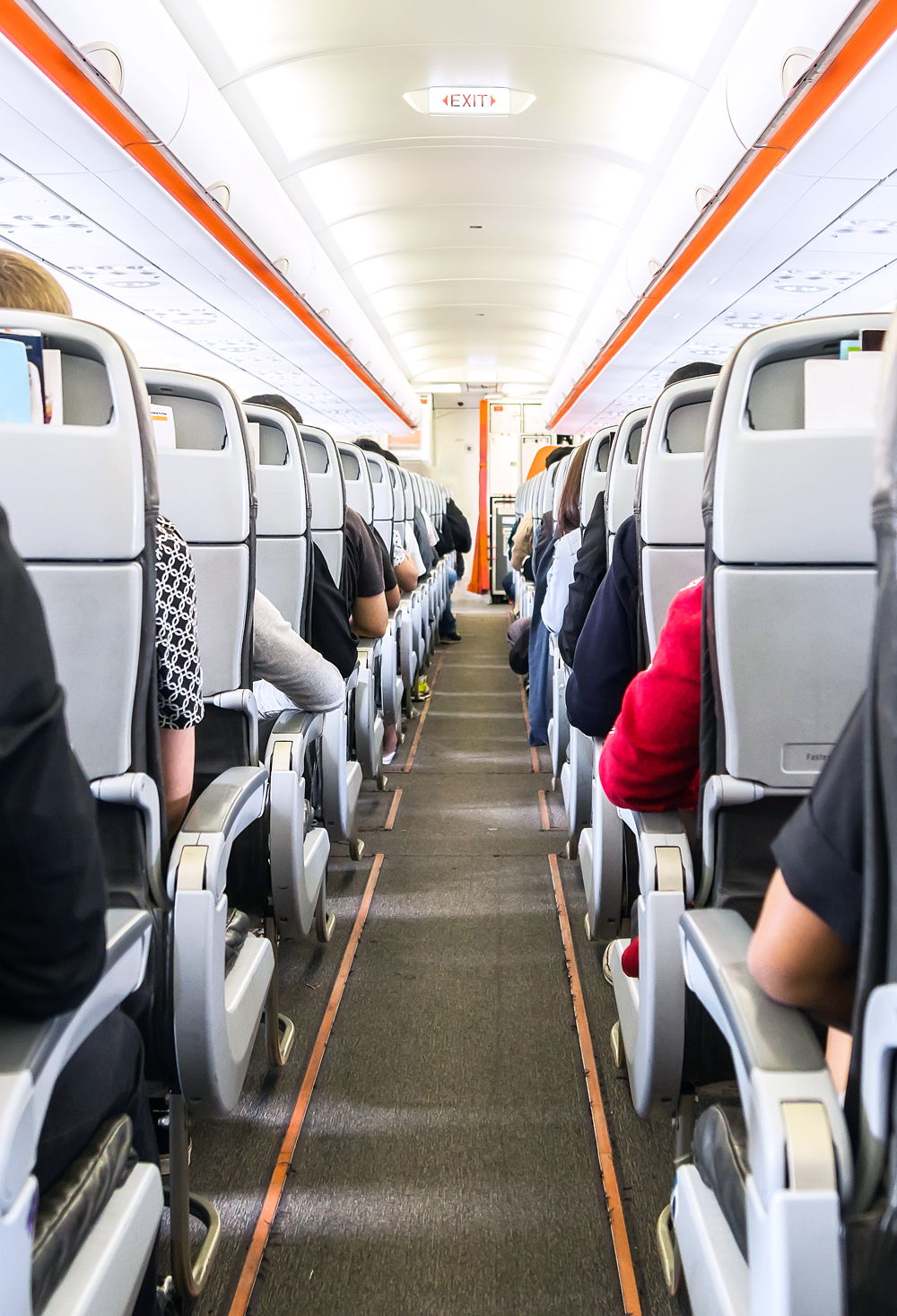Anytime you’re on an airplane and getting ready to push back from the gate, you’ll hear these familiar instructions: seatback and tray table in their upright position, belongings safely stowed under the seat in front of you, and mobile devices switched to airplane mode. But about that last one… have you ever stopped to wonder why we have to switch our phones to airplane mode, or even what it really means? Here’s everything you wanted to know about airplane mode and if you really need to use it on your next flight.
What Is Airplane Mode?
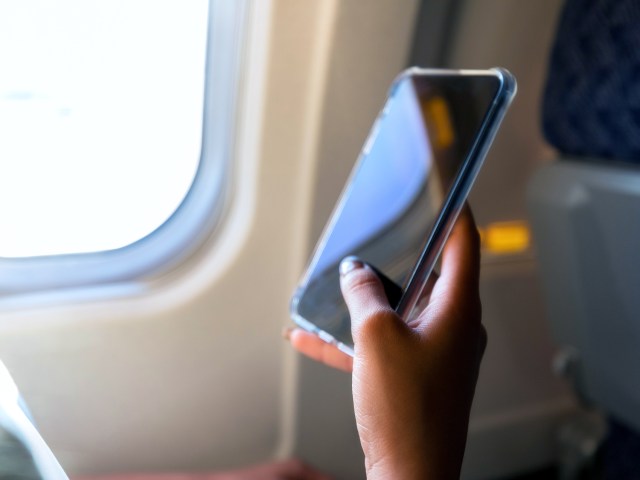
Airplane mode was introduced because of potential concerns that cell phones could cause interference with aircraft instruments during flight. The basic function of airplane mode or flight mode is to block cell tower reception so the phone cannot send or receive wireless communications — while still allowing users to access the rest of a smartphone’s features, like Wi-Fi, music, podcasts, and games. Because many of the same signals that are used for communication by pilots are the same used to connect phones to cell towers, there could be interference if an entire flight full of smartphones were trying to connect at the same time as the plane’s computer system.
Potential Risks of In-Flight Cell Phone Use
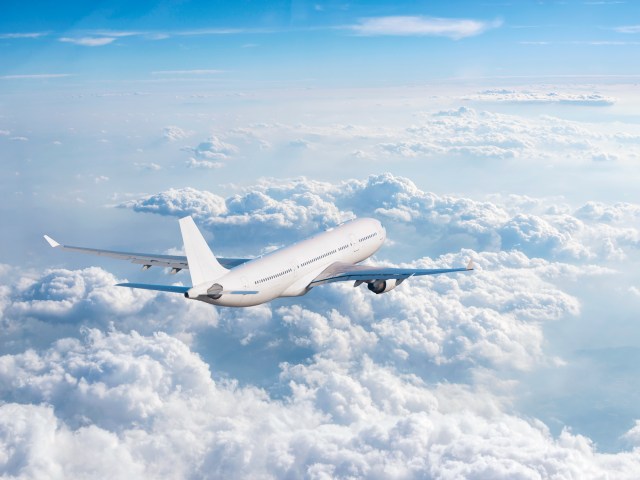
In 1991, the Federal Communications Commission (FCC) banned the use of most cell phones and wireless devices during flight. Air traffic control needs to have a constant, direct line of communication with pilots, and there were concerns that cell phone signals could interfere with the ground networks used for communication. While it’s not currently thought that they cause serious harm, there’s a risk that they could create delays and cause confusion for pilots.
The most crucial time for pilots to have this connection to air control is during takeoff and landing, when signals and communications are coming in rapidly and time is of the essence. Even the potential for a cell phone signal to interrupt a pilot during this window is what initially led to regulators requiring that their customers switch to airplane mode.
What Happens if You Don’t Turn on Airplane Mode?
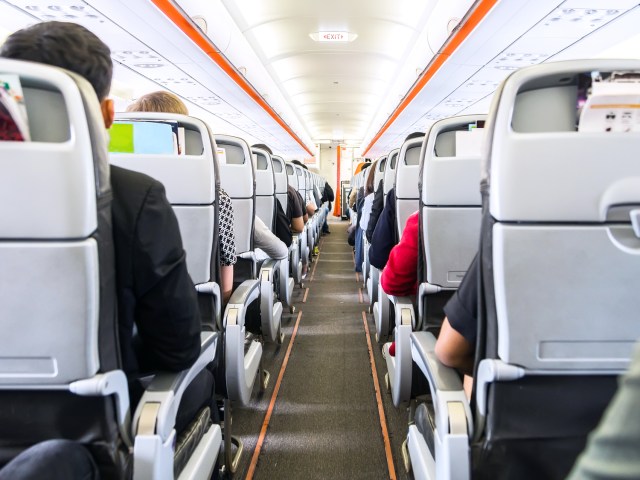
The Federal Aviation Administration (FAA) and aircraft manufacturers like Boeing conducted a series of tests in the 1990s about the potential interference caused by cell phone signals with an aircraft’s communication and navigation systems. While there wasn’t conclusive evidence either way that these signals do, in fact, interfere with critical aircraft systems, the ban has been left in place out of an abundance of caution. Those who choose not to turn on airplane mode will not only be defying FAA regulations, but they’ll also probably be disappointed to know that most cell phone signals aren’t powerful enough to reach your phone while airborne.
Will We Ever Be Able to Use Cell Phones In-Flight?
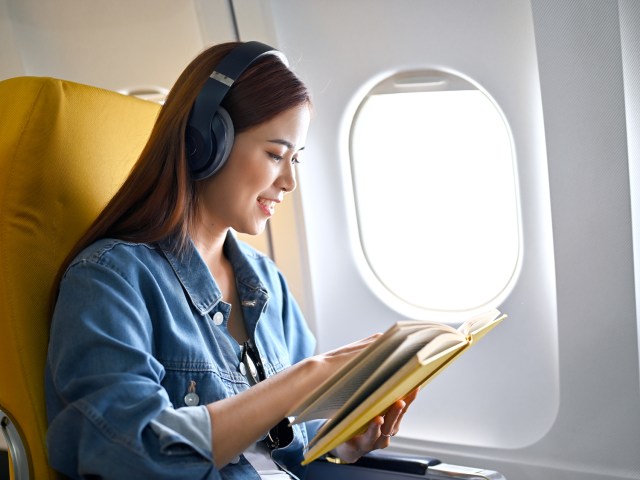
In 2023, the European Union ruled that airlines can start allowing passengers to use 5G cell phone service in flight, just as they would on the ground. However, Americans might have to wait a little longer — the 5G frequencies used in the U.S. are much stronger than Europe, and there are still potential safety concerns.
That said, most airlines in the U.S. now offer in-flight Wi-Fi coverage, and some — like Delta or JetBlue — even offer it to all passengers for free. That allows passengers to stay connected in the skies, even if they can’t make voice calls. Plus, you might find it easier to relax on a flight if there aren’t 150 other passengers around you talking on their phones — at least for now.
More from our network
Daily Passport is part of Optimism, which publishes content that uplifts, informs, and inspires.






